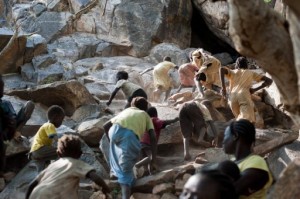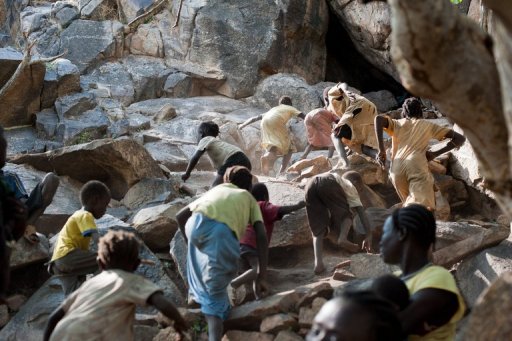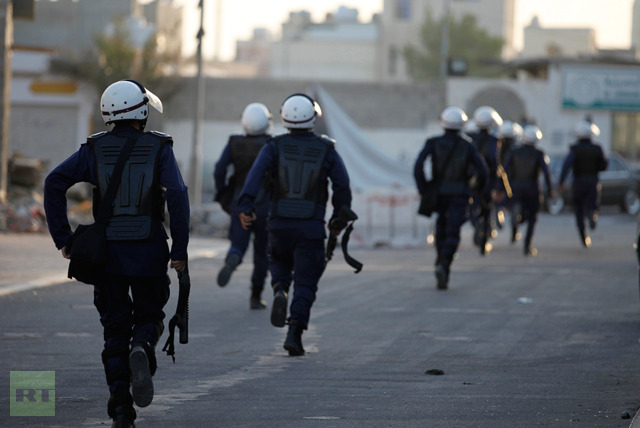
AFP PHOTO / Phil Moore
By Ian Timberlake (AFP)
Khartoum – Residents have fled the capital of Sudan’s South Kordofan state after renewed shelling, a witness said on Saturday, as rebels claimed responsibility for their third attack this month.
“Yesterday five shells hit the ground inside the town while an official delegation from Khartoum was visiting,” during the Eid Al-Adha Muslim holiday, said the witness in Kadugli who asked for anonymity.
“I didn’t see any casualties or wounded. But most of the residents of Kadugli took their families out of town.”
Rebel mortar fire targeted an army divisional headquarters and an artillery base in Kadugli after government air strikes on rebel-held villages, said Arnu Ngutulu Lodi, spokesman for the Sudan People’s Liberation Movement-North (SPLM-N).
“People told me, 6:00 am Friday morning the bombing started” in areas around rebel-held Kauda town and around Kadugli, where a defence ministry delegation arrived for Eid Al-Adha prayers, Lodi told AFP.
One child was injured and several houses destroyed by the government air raids, he said.
“We responded, shelling Kadugli.”
Sudan’s army spokesman could not be immediately reached on Saturday, and a senior ruling party official said he was too busy to talk.
The latest barrage comes after the rebels said they fired 82-mm mortars at Kadugli on Tuesday, following an unprecedented October 8 shelling which reportedly killed seven women and children.
The army said two children died in Tuesday’s barrage but SPLM-N denied that, saying their shells struck an artillery base and killed a number of troops.
In a statement, the UN said Tuesday’s shelling “resulted in the death of at least one child and many others injured with at least two rounds falling near the UNICEF compound.”
The SPLM-N, who have been fighting in South Kordofan since June last year, were allies of southern rebels during Sudan’s 22-year civil war, which ended with a 2005 peace deal that led to South Sudan’s independence in July last year.
Sudan accused South Sudan of supporting the SPLM-N, a charge which analysts believe despite denials by the government in Juba.
However, in September Khartoum and Juba signed a deal for a demilitarised border buffer zone designed to cut support for the insurgents.
The pact was among agreements on security and oil, sealed with African Union mediation, which leaders of the two nations hailed as ending their conflict.
Sudan and South Sudan fought a border war in March and April, leading to a UN Security Council resolution which ordered a ceasefire and settlement of crucial unresolved issues.
The war in South Kordofan and Blue Nile, where SPLM-N is also fighting, has affected an estimated 900,000 people but more than a year of talks has failed to get food aid into rebel zones, the UN has said.



